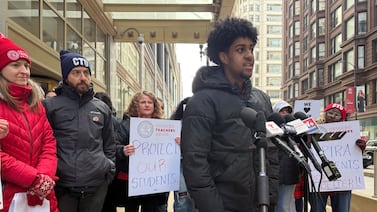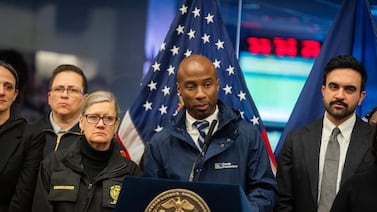Black or Hispanic students and those from low income families are the least likely to receive the most experienced, qualified teachers in Pennsylvania, a new study from Pennsylvania State University shows.
Using Pennsylvania Department of Education data from the 2020-21 school year, researcher Ed Fuller found that schools with the greatest percentage of students eligible for the federal free and reduced-price meals “had substantially greater percentages of novice teachers, teachers assigned out-of-field, and teachers on emergency permits than schools with the lowest percentages of students eligible for the…program.”
Fuller, a professor of education who works with Penn State’s Center for Education Research & Policy Analysis, said the pattern holds for elementary, middle, and high school levels, although the upper grades have the highest percentage of teachers lacking full qualifications. The shortages are most acute in urban areas, he found.
Schools in districts that are relatively underfunded, including Philadelphia, had higher percentages of “novice” teachers with under three years of experience, teachers who were teaching a subject in which they were not certified, and teachers who were working with emergency credentials.
“Overall, the evidence overwhelmingly shows that students most in need of well-qualified teachers are the least likely to be enrolled in schools that provide qualified teachers,” the report said. According to Fuller’s data, Black students were twice as likely to be enrolled in schools that lacked fully qualified teachers than white students.
“Regardless of the measure you use, the teacher qualifications of those teaching in Philadelphia county are lower than any other county in the Commonwealth,” Fuller said in an interview.
While that is “no fault of the teachers” who are hired to work in the city, he said, “that’s what struck me the most.”
Much of this is due to the high number of charter schools in the city, which educate about 70,000 students, compared to about 119,000 in district-run schools. Under the state law that established them, charter schools can have as many as 25% of their teachers be uncertified.
Fuller’s data shows that nearly 28% of teachers in charter elementary schools in Philadelphia have less than three years experience, while 41% are teaching out of their field, and 11% are not fully certified. That compares to 13% of novice teachers in district schools, 11% teaching out-of-field, and 5% who aren’t fully certified.
Another part of the issue is that the number of teachers graduating from teacher certification programs in Pennsylvania is at an all-time low, with just 4,000 graduating this year, Fuller noted. That compares to 16,000 a decade ago, in 2011-12.
Historically, he said, a quarter of those coming out of teacher prep programs in Pennsylvania each year would end up teaching in Philadelphia.
“The differences in teacher quality — exacerbated by the current shortage of teachers — all but guarantees the vast gap in achievement and other outcomes between students of color and white students as well as between students participating in [free and reduced meals] and their more affluent peers,” the report said.
Fuller attributed much of this difference to spending disparities among districts in Pennsylvania, whose education funding system was ruled unconstitutional by Commonwealth Court Judge Renee Cohn Jubelirer in February. She ordered the state to fix the system.
But while the budget passed by the legislature and signed last month by Gov. Josh Shapiro has a historic boost in education funding, it did not overhaul the system in a way that would come close to meeting Jubelirer’s mandate.
Teacher salaries in Philadelphia range from around $50,000 for new teachers with a bachelor’s degree to about $100,000 for those with 11 years experience or who have reached the status of senior career teacher.
District spokesperson Marissa Orbanek said that its Philadelphia schools are expecting 650 new teachers and counselors at its new hire orientation next week.
Dale Mezzacappa is a senior writer for Chalkbeat Philadelphia, where she covers K-12 schools and early childhood education in Philadelphia. Contact Dale at dmezzacappa@chalkbeat.org.






